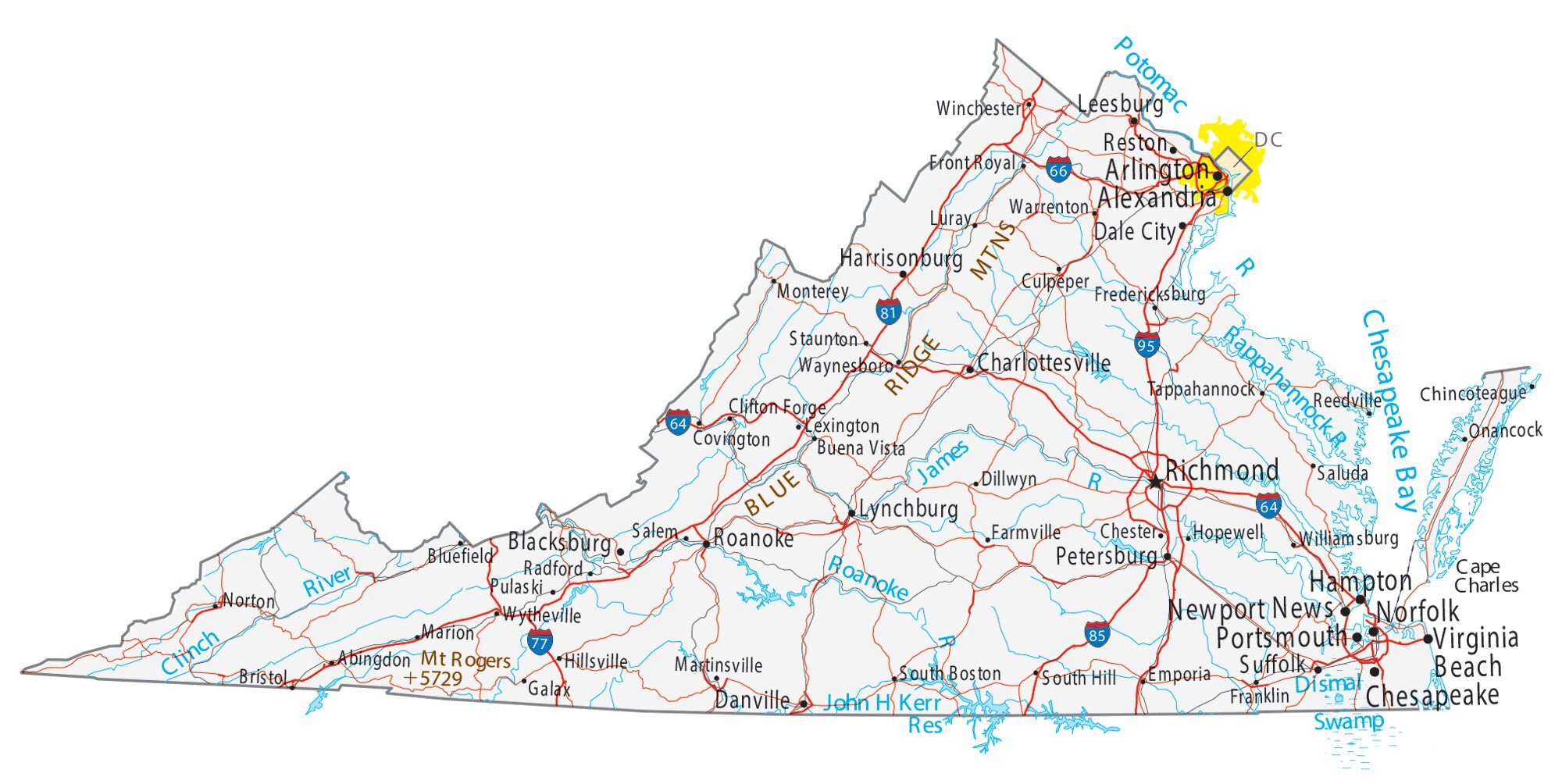Septic systems are a vital part of wastewater management in Virginia, especially in rural and suburban areas where public sewer systems are not available. Understanding Virginia septic system regulations is crucial for homeowners and contractors to ensure proper installation, maintenance, and compliance with state laws. This guide will provide essential information on installation permits, tank sizing, wastewater disposal, maintenance, and more, so you can navigate the regulatory landscape with confidence.
Table of Contents
- Installation Permits
- Septic Tank Size and Placement
- Wastewater Disposal
- Maintenance and Pumping
- Compliance Information
- Cost Information
- Local Resources & Contact Information
- Supportive Resources
- (FAQs) about Septic Systems in Virginia
Installation Permits
In Virginia, obtaining a permit is required before installing a septic system. Virginia septic system permits ensure that the installation complies with local health and environmental standards. The permit application process involves submitting plans that outline the septic tank size, drain field placement, and wastewater disposal methods. The cost of these permits varies depending on the locality, but homeowners should expect to pay a fee, which is typically between $100 and $500. It’s important to submit the necessary paperwork to the local health department or environmental agency before beginning installation.
Septic Tank Size and Placement
Septic tank regulations VA dictate the size and placement of septic systems. The size of the septic tank is generally determined by the number of bedrooms in the home, with a minimum tank size of 1,000 gallons for a three-bedroom house. Proper placement of the tank and drain field is crucial to ensure efficient wastewater treatment and prevent contamination of groundwater. The Virginia health department wastewater guidelines provide specific rules for the location of the septic tank, including setbacks from wells, property lines, and water bodies. These regulations are designed to protect public health and the environment.
Wastewater Disposal
Virginia wastewater management laws govern how wastewater is disposed of from septic systems. In most cases, wastewater from the home flows into the septic tank, where solids settle at the bottom, and liquid effluent is filtered through the drain field. The Virginia health department wastewater guidelines outline how effluent should be treated and filtered before being released into the environment. Homeowners must ensure that their septic systems are properly maintained to prevent contamination of nearby water sources and avoid environmental damage.
Maintenance and Pumping
Regular maintenance is essential for the longevity and efficiency of septic systems. The Virginia septic system regulations recommend pumping the septic tank every 3 to 5 years, depending on the size of the tank and the household’s water usage. Failure to maintain the system can lead to clogs, overflows, and costly repairs. Homeowners should also schedule inspections to ensure that the system is functioning properly. The Virginia health department wastewater guidelines emphasize the importance of routine maintenance to prevent environmental contamination and avoid penalties.
Compliance Information
Failure to comply with Virginia septic system regulations can result in significant fines and penalties. Violations may include improper installation, failure to maintain the system, or discharging untreated wastewater into the environment. Local authorities may issue citations and require corrective actions, which can be costly. In addition to fines, non-compliance can result in environmental damage, which may lead to further legal consequences. Virginia’s environmental regulations are in place to protect public health and the environment, and it is important for homeowners to stay informed about these rules to avoid violations.
Cost Information
The costs associated with septic system services in Virginia vary depending on the type of service required. Here are some typical costs:
- Permit fees: The cost of a septic system permit typically ranges from $100 to $500, depending on the county or locality.
- Pumping costs: Pumping a septic tank generally costs between $200 and $400, depending on the size of the tank and the service provider.
- Installation estimates: The cost of installing a new septic system in Virginia can range from $3,000 to $10,000, depending on the complexity of the installation and the size of the property.
It is essential to obtain estimates from licensed professionals to ensure that the system is installed correctly and complies with all local regulations.
Local Resources & Contact Information
Several agencies in Virginia are responsible for regulating septic systems and ensuring compliance with state laws. The Virginia health department is the primary agency overseeing wastewater management, while local environmental protection agencies and health departments may handle specific regulations at the county or city level. Homeowners can contact these agencies for more information on septic system regulations and permits.
For professional septic services, homeowners should reach out to state-certified septic system companies. These companies are licensed to install, maintain, and repair septic systems in accordance with Virginia septic system regulations.
Supportive Resources
There are several helpful resources available to homeowners and contractors in Virginia regarding septic systems. The Virginia health department’s website provides detailed guidelines and information on septic system regulations. Additionally, many local environmental agencies offer downloadable guides and infographics that outline the steps for obtaining permits, maintaining systems, and complying with regulations. Homeowners can also find a list of certified septic service providers through the Virginia Department of Environmental Quality (DEQ).
Virginia Department of Health (VDH) – Onsite Sewage and Water Services
The VDH provides guidelines and regulations for septic systems and wastewater management in Virginia. You can access details about septic system permits, inspections, and maintenance requirements here:
Virginia Department of Health – Onsite Sewage
Virginia Wastewater Management Regulations
This page outlines the state’s policies on wastewater management, including regulations for septic systems and treatment works. It is a useful resource for understanding compliance and legal obligations:
Virginia Wastewater Management Regulations
Virginia Department of Environmental Quality (DEQ)
For more comprehensive environmental protection guidelines, including wastewater management, the DEQ provides resources and regulations: Virginia Department of Environmental Quality
Conclusion
Complying with Virginia septic system regulations is essential for maintaining a safe and efficient wastewater management system. By understanding the requirements for permits, tank sizing, wastewater disposal, and maintenance, homeowners can ensure their septic systems function properly. This can help avoid costly fines and environmental penalties for non-compliance. It’s crucial to follow local regulations and maintain the system regularly to prevent issues and ensure proper wastewater treatment. Regular inspections and maintenance, as outlined by the Virginia Health Department wastewater guidelines, will help protect public health and the environment. By adhering to these guidelines, homeowners can avoid costly fines and contribute to the proper functioning of their septic systems. Stay informed and consult local authorities and certified professionals to ensure compliance with Virginia’s septic system laws.
(FAQs) about Septic Systems in Virginia
How Do I Apply for a Septic System Permit in Virginia?
To apply for a septic system permit, submit a completed application with a plat or site sketch showing the property and system location. You can submit these documents to your local health department. Virginia Department of Health.
Can I Install My Own Septic System in Virginia?
No, Virginia law requires that only licensed professionals install septic systems. You can find a licensed installer through the Virginia Department of Professional and Occupational Regulation (DPOR)
How Long Are Septic Permits Valid in Virginia?
A septic construction permit in Virginia is valid for 18 months. If you do not complete the construction within this period, you may need to reapply Virginia Department of Health.
What Are the Regulations for Septic Tank Pump-Outs in Virginia?
In certain areas like the Chesapeake Bay region, Virginia mandates septic tank pump-outs every five years to prevent contamination. Homeowners must obtain a certificate from an authorized professional after each pump-out.
Directory | Washington Septic Service Providers | Part 2
Directory | Washington Septic Service Providers | Part 1
DIY Repairs Are Always Cheaper
Septic Regulations in Rural Areas: Essential Guide for Rural Property Owners
The Role of Perforated Pipes in Drain Fields
What Happens During a Pumping Service?







